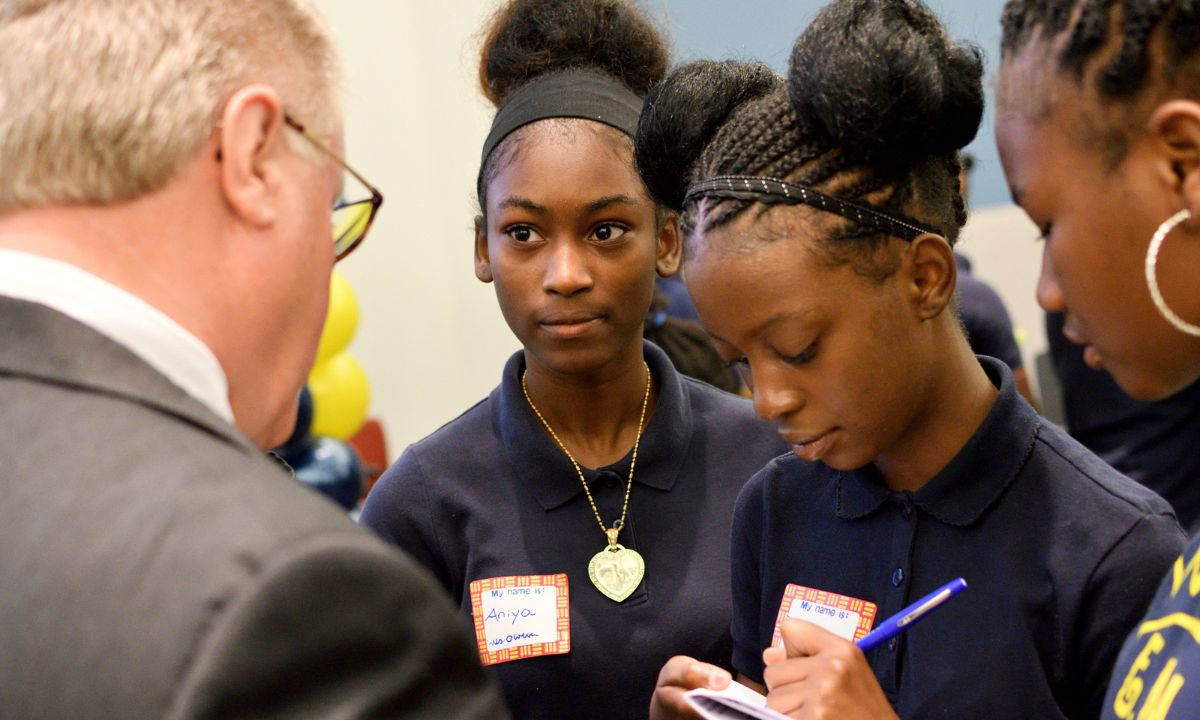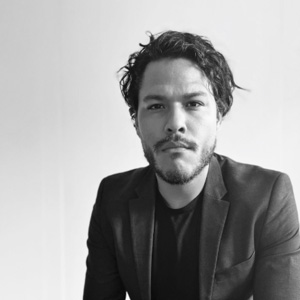Young People Have Something to Say. We Should Be Listening
Pineda: We can engage young people by lowering voting ages, redesigning civic education, and extending opportunities for civic involvement.

Get stories like this delivered straight to your inbox. Sign up for The 74 Newsletter
The kids are at it again.
In recent years, Generations Z and Alpha have made clear that they are dissatisfied with our country’s current state. They’re protesting the collective status quo of partisanship, perpetual plutocracy and the unchecked disconnect of our gerontocratic leaders. As they come of age in a moment of extraordinary tension, their patience for traditional civic engagement is coming to an end.
To avoid this we must welcome young people into the socio-political fray by lowering voting ages, redesigning civic education to combat misinformation and radical politics, and extending opportunities for youth to authentically engage at the municipal level.
It is a fallacy to believe civic consciousness starts at age 18. Regardless of how they communicate it, 14- to 17-year-olds are capable of contributing to elections, as well as to the design of policy and practice. This is particularly true of marginalized youth who offer a unique vantage point on some of our most prominent social issues.
The perspectives of these young people – 70% of which are students of color – are incredibly valuable, particularly at a time when they’re grappling with an onslaught of threats to their physical, civic and democratic futures – each of which carry tangible ramifications.
It’s these perspectives that must be nurtured to ensure the longevity of our civic system, and secure the future of equitable and empathetic social progress. And there’s plenty of evidence that proves we’d be right to trust the younger generation’s voices.
In 2020, I was on a team funding and providing policy support for an equity-focused Youth Participatory Action Research (YPAR) audit in Iowa. YPAR trains young people to use research methods to inform and influence local policy). In Des Moines, in the midst of a national racial reckoning, a cohort of students saw an opportunity to leverage the evidence that school resource officers (SROs) are more likely to charge students of color with crimes, and threaten their well-being and academic performance. The cohort successfully recommended the school board remove SROs from schools and reallocate those monies to fund counselors. The following year, there was an 82% reduction in the number of students of color referred to the juvenile justice system.
Along with other timely policy recommendations across the state, some making it to the House floor, this participatory audit in Iowa displayed the penchant young people have for social analysis and policy, and how their perspectives can be used to effectively influence local policies.
Don’t mistake these Iowan kids as exceptions. What the YPAR audit captured was the capacity and civic agency of the typical “kid.” It reflects the developmental science that tells us young brains have the capacity to develop social and ethical perspectives that can solve societal issues within ethical and moral parameters.
It’s the science, research, and results from similar programs and practices that have inspired and bolstered my trust in young people — and why I believe we must redefine civics education and develop opportunities for civic participation for young people beginning at age 14. It is also why I am a strong proponent of lowering the voting age for municipal elections to 16 (Vote 16) – which is proving to have a profound effect on voter turnout, engagement and sustained civic involvement.
This is why the election and climate protests on campuses in recent years have felt different. It’s this shift in tone that signals that our young people don’t believe the system works.
If this is the case, a great deal is at risk. Without legitimate outlets for civic engagement that are fostered in the classroom, authentically practiced with ballot access, or validated through participatory opportunities like YPAR, young people may well resort to violent and regressive alternatives for affecting change. With our democracy already in a fragile state, it is a necessity to reconsider what civic engagement looks like, and who has access to it.
As this young demographic quickly becomes the majority constituency in the nation, it seems accepting them into the civic discourse is the only recourse we have left.
Redesigning civic education, developing participatory programs, and lowering voting ages is particularly complicated in the current political climate.
We must avoid dumping kids into a pool of supercharged partisan rhetoric and vitriol. We need to teach pragmatism and civility. We need safe conditions for kids to consider hard data that reflects lived truths and promotes the taking of accountability and responsibility. We need discourse and dialogue. But, above all, we, the adults, must simply hear them.
Large cultural shifts don’t take place in the vacuum of policy houses or nonprofits. They take place in the collective consciousness, and it requires humility, empathy, acceptance and courage from us all. Let’s trust the kids to help get us there.
Get stories like these delivered straight to your inbox. Sign up for The 74 Newsletter

;)
